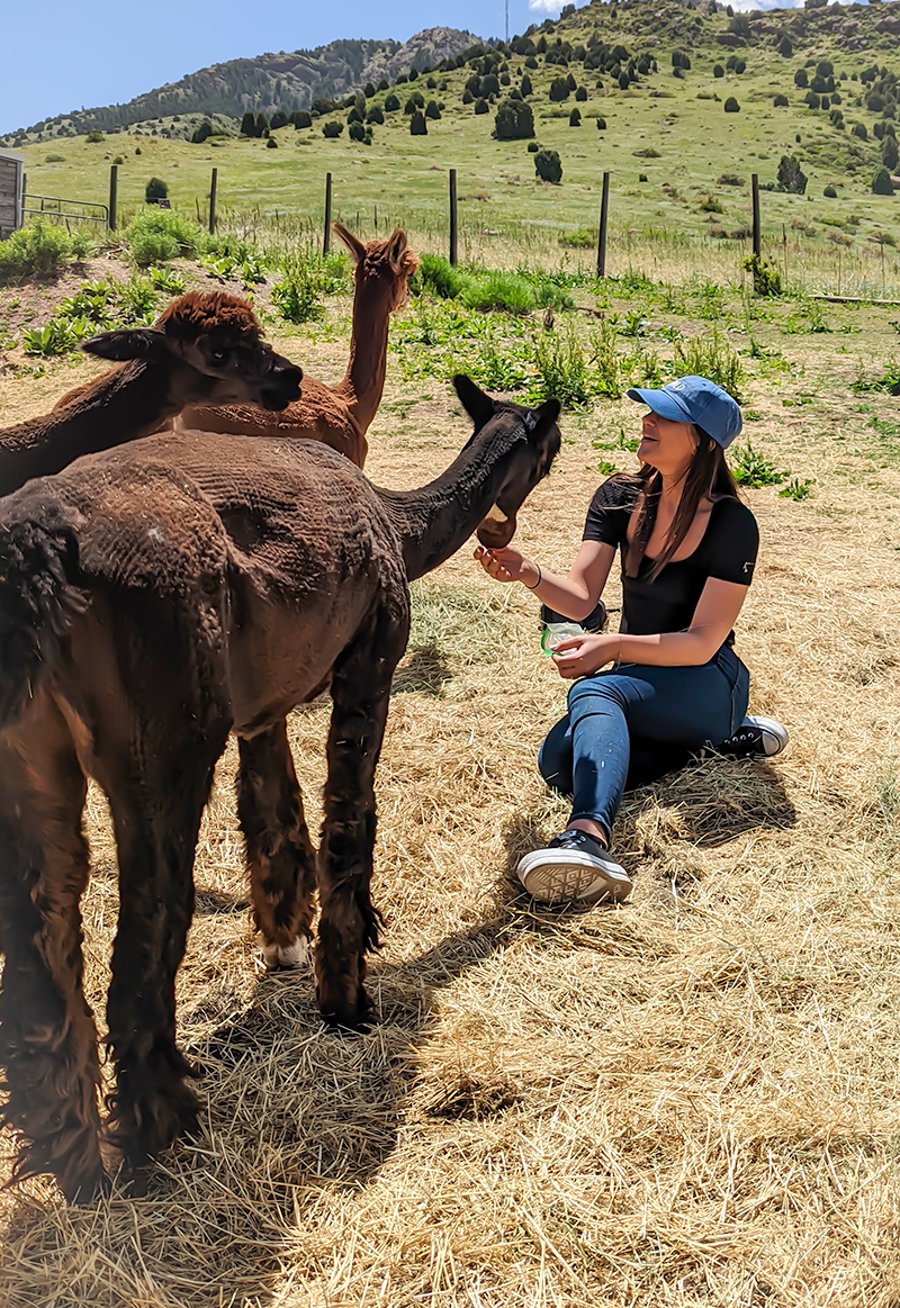
Fabulous alpaca adventures and vacation guides in Denver, Colorado
Denver, Colorado alpaca adventures right now: Additionally, if you love seeing and interacting with animals, an alpaca farm provides a hands-on experience. You can hand-feed your new friends a healthy snack and hang out with them while they provide amusing entertainment. It provides you with the chance to interact with the ranch: Most people don’t know a lot about alpacas before they visit the ranch. Alpacas originate from South America, and they’ve been brought to Colorado over the last several decades. The climate of Colorado is perfect for the alpaca, so they’re content living on ranches in Denver. When you go behind the scenes on the ranch, you learn about much more than just the animals. You have the opportunity to talk about the economy, trade, production, local handmade goods, and so much more. See even more information on where to see alpacas in Colorado.
Alpaca fur is a very prized fiber for artisans and crafters. Alpaca fur is very soft and does not retain water. It is also very durable. According to National Geographic, alpaca fur is the second strongest animal fiber, after mohair. Alpacas come in 22 colors, from a true, blue-black through browns and tans to white, according to Alpaca Ventures. Some Andean people eat alpaca meat. In Peru, it is often served in upscale restaurants. Alpacas don’t have teeth in the top-front of their mouths. This gives them the appearance of having an underbite.
As with all livestock, owners and visitors should use common sense and a degree of caution when working around alpacas. People working with alpacas should wear long pants and shoes or boots that have traction and cover the whole foot. Proper handling of alpacas, as well as all camelids, requires humans gaining their trust by using a calm voice and light restraint. Handling alpacas for herd husbandry is best taught to novice alpaca owners by experienced owners or experts.
Alpacas are very social creatures. They are gentle and curious and with training can become great pets, according to Switzer. Herds often include animals of different species or taxonomic families, such as llamas, goats and sheep, according to the FAO. Alpacas spit when they are distressed or feel threatened. They will sometimes spit at each other when they are competing for food or trying to establish dominance, according to Switzer. They won’t spit at people or bite unless they have been abused.
What is an alpaca? Alpacas (vicugña pacos) are members of the Camelid Family and are a domesticated species of the South American camelid. Camelids originated in North America over 40 million years ago. Camels migrated east via the Bering Strait and llamas migrated to South America. Today there are five recognized camelids breeds: camels, llamas, guanacos, alpacas, and vicunas. They vary by size and purpose, some being used primarily as pack animals and others valued for their fiber. All are used in a secondary meat market. Camels, llamas, and alpacas have been domesticated for thousands of years, whereas guanacos and vicunas continue to roam freely in herds. Many people are familiar with humped camels: the dromedary of Northern Africa, the Middle East, and Southern Asia, and the Bactrian camel of China and Tibet. Next in size is the llama (domesticated guanaco), followed by the alpaca (domesticated vicuna).
Still, you should always remember to treat alpacas with space and respect. Alpacas don’t like being grabbed or held, and they are often particularly sensitive to being touched on the head. Instead, allow them to approach you at their own pace. This often results in a much more rewarding and affectionate response. If you’re looking for an age-appropriate experience for the entire family, you’ve met your match. Interacting with alpacas is safe for everyone from little kids to elderly members of your crew. There are no age restrictions — kids 2 and under are free. See even more details at https://meetalpacas.com/.
Are alpacas easy to train? Alpacas are very smart animals and are fairly easy to train. It is best to start training them when they are young so that they will accept a halter and learn to follow on a lead. Many owners also enjoy training them to walk through obstacles. Some even compete with their alpacas at shows where they walk over, through, and around objects and also jump over small hurdles. Also, it is helpful to train alpacas to ride in a trailer or van if they ever need to be transported to a show or another farm. Alpacas are easy to transport, as they normally cush (lay down with their legs folded under them) when traveling. Be aware that alpacas should not be tied up when traveling.